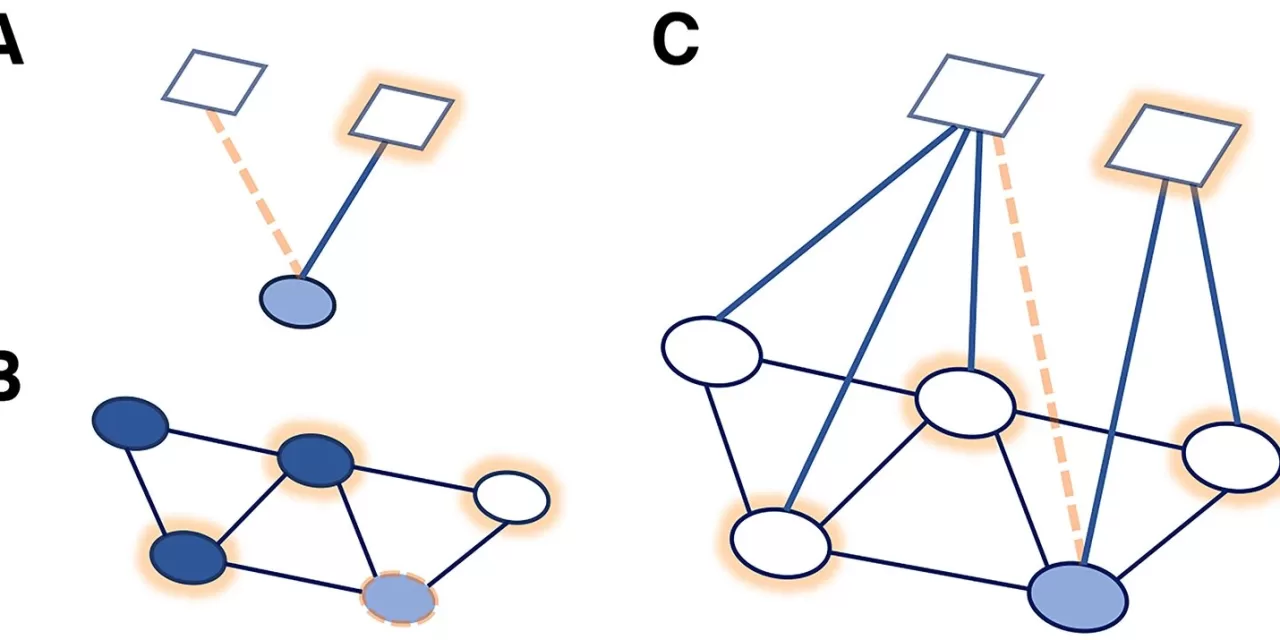A groundbreaking study published in Scientific Reports has revealed that people’s social connections play a crucial role in whether they adopt preventative health measures. This new research suggests that public health initiatives may need to rethink their strategies and place greater emphasis on social networks.
The study, conducted by a collaborative team from The University of Manchester, the University of Birmingham, NYU, and the Indian Institute of Public Health, explored the influence of social connections on malaria prevention behaviors in ten villages in India. The research examined how factors like bed net usage, insect repellent application, and protective clothing were adopted by individuals in the context of their social networks. More than 1,500 adults were interviewed, providing valuable insights into the impact of social interactions on health practices.
The findings of the study underscore the importance of social networks in shaping health behaviors. The primary factor influencing whether individuals adopted malaria prevention measures was the behavior of those within their social circles. If family members and friends used insect repellents, for example, individuals were more likely to adopt those same practices themselves. This highlights the idea that health behaviors are not solely the result of personal decisions but are heavily influenced by the social environment.
Households were also found to play a critical role in shaping health-related discussions. People tend to talk about health matters within their homes, meaning the information exchanged within families significantly impacts the adoption of preventative measures. Interestingly, factors such as age, gender, and education—as well as advice from health experts—were found to have a smaller influence on the decision to adopt preventative behaviors.
The study also revealed that individuals tend not to adopt a range of health behaviors at once. Instead, they are more likely to adopt specific preventative measures that are common within their social networks. This finding challenges the assumption that adopting one healthy behavior will lead to the adoption of others.
Given these insights, the researchers suggest that public health campaigns should focus on leveraging the power of social influence. Rather than concentrating solely on individuals, programs should target community leaders and influential people who can spread health behaviors throughout their networks. Additionally, interventions at the household level, rather than focusing on individual behavior, could result in more effective prevention strategies.
While the research focused on malaria prevention in rural India, the implications are far-reaching. The study provides a valuable framework for developing more effective public health strategies worldwide. It emphasizes the importance of considering the social context when designing initiatives aimed at preventing infectious and non-communicable diseases.
“We found that while individual choices matter, the environment in which these choices are made—particularly our social networks—plays a key role in influencing them,” said Dr. Elisa Bellotti, a lead researcher on the project. “By understanding the power of social influence, we can make significant strides in promoting healthier societies.”
This study offers a fresh perspective on disease prevention, highlighting the collective power of social networks in shaping health outcomes. Its findings could pave the way for more holistic, community-driven approaches to global public health.
Disclaimer: The views expressed in this article are based on a study published in Scientific Reports. The results may vary based on regional and cultural differences and may not necessarily apply to all diseases or populations globally.
More information: András Vörös et al, A multilevel social network approach to studying multiple disease-prevention behaviors, Scientific Reports (2025). DOI: 10.1038/s41598-025-85240-7











